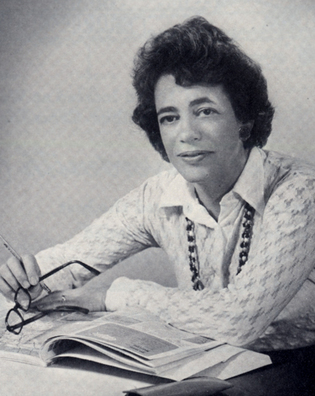 loading
loading
MilestonesAn advocate for Yale womenRemembering Elga Wasserman ’76JD, who led coeducation in the college.  Manuscripts and ArchivesTrained as a chemist, Elga Wasserman ’76JD helped introduce coeducation to Yale College. She later became a lawyer and lectured about women in science and academia. View full imageWhen Elga Wasserman ’76JD first came to Yale in 1948, she had a PhD in chemistry from Harvard, but the campus assumed she’d play the role of “faculty wife.” “I was expected to call on people, with white gloves,” she said at a panel on coeducation in 2010. Wasserman, who died on November 11 at the age of 90, had other ideas. She worked in science, higher education, and family law over the next six decades; she is best remembered at Yale as an instrumental figure in opening the college to women in 1969. Born in Berlin in 1924, Elga Steinherz emigrated to New York with her family in the 1930s. She graduated at the top of her high school class at 16, then went on to Smith College and Harvard, where she was one of two female graduate students in organic chemistry. Shortly after she married fellow chemist Harry Wasserman, he joined the Yale faculty, and she began teaching part time at Southern Connecticut State University and Quinnipiac College while raising three children. In 1962, she became an assistant dean at the Yale Graduate School. Seven years later, President Kingman Brewster Jr. ’41 appointed her special assistant on the education of women and chair of the Committee on Coeducation. Brewster aide Henry Chauncey Jr. ’57, who also worked on the admission of undergraduate women, says their biggest challenge was not putting together an entirely new admissions apparatus or ensuring there were enough women’s restrooms: it was dealing with those who actively opposed coeducation. “Elga was a diplomat,” Chauncey says. “But if it was a matter of principle, she had a spine of steel, and if the diplomacy didn’t work, she would let people know they had no choice.” Wasserman left administration for law school at Yale. She practiced family law until 1995, then started yet another career writing and lecturing about women in academia. Her 2000 book The Door in the Dream focused on women members of the National Academy of Sciences. Trudy Bialic ’75 remembers Wasserman as a regal woman with a strong sense of humor. “She stood her ground and she helped me stand my ground,” Bialic said. “I wondered when I arrived whether I would fit in, but she helped me see that Yale was the perfect home for me.”
The comment period has expired.
|
|